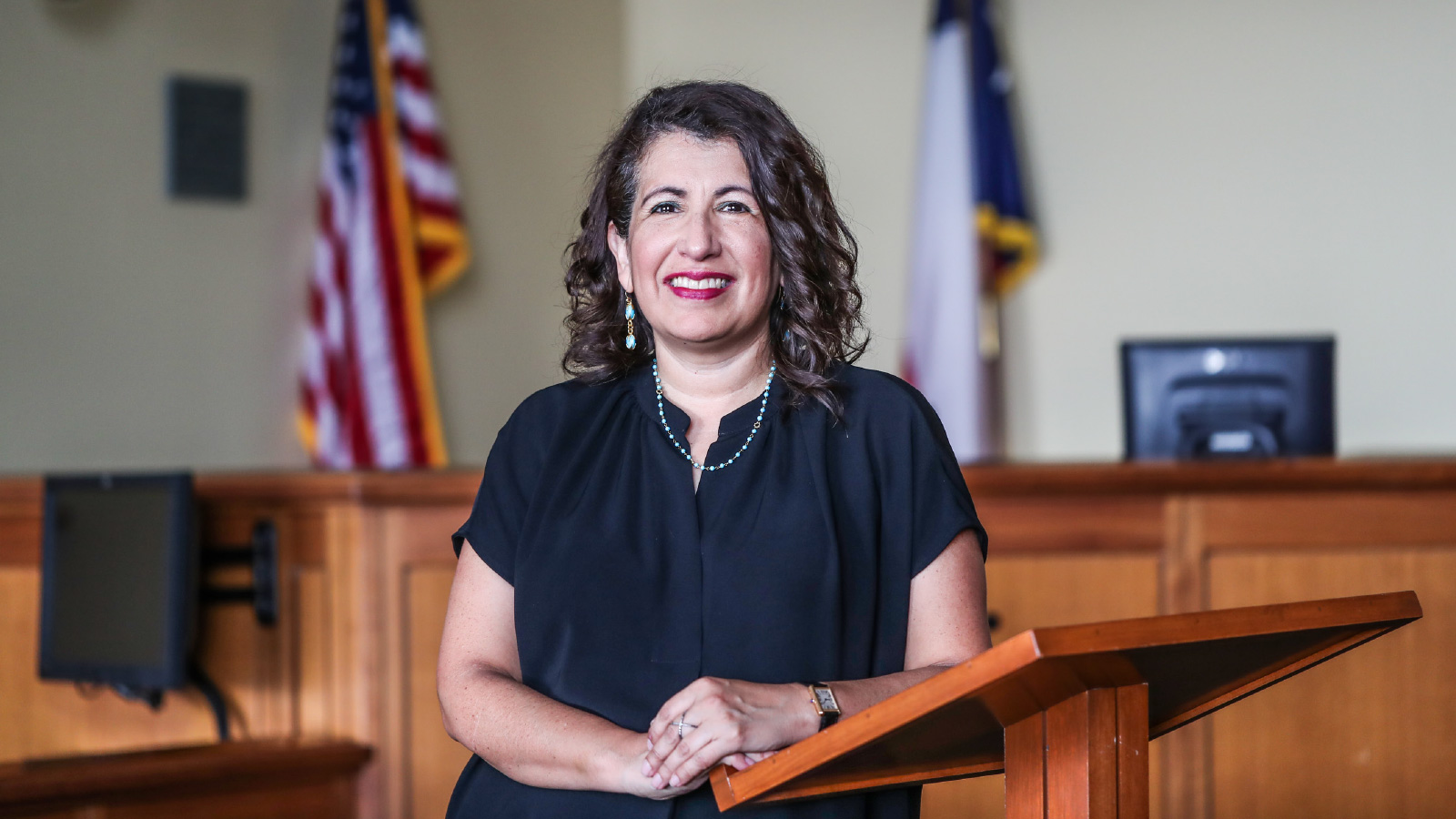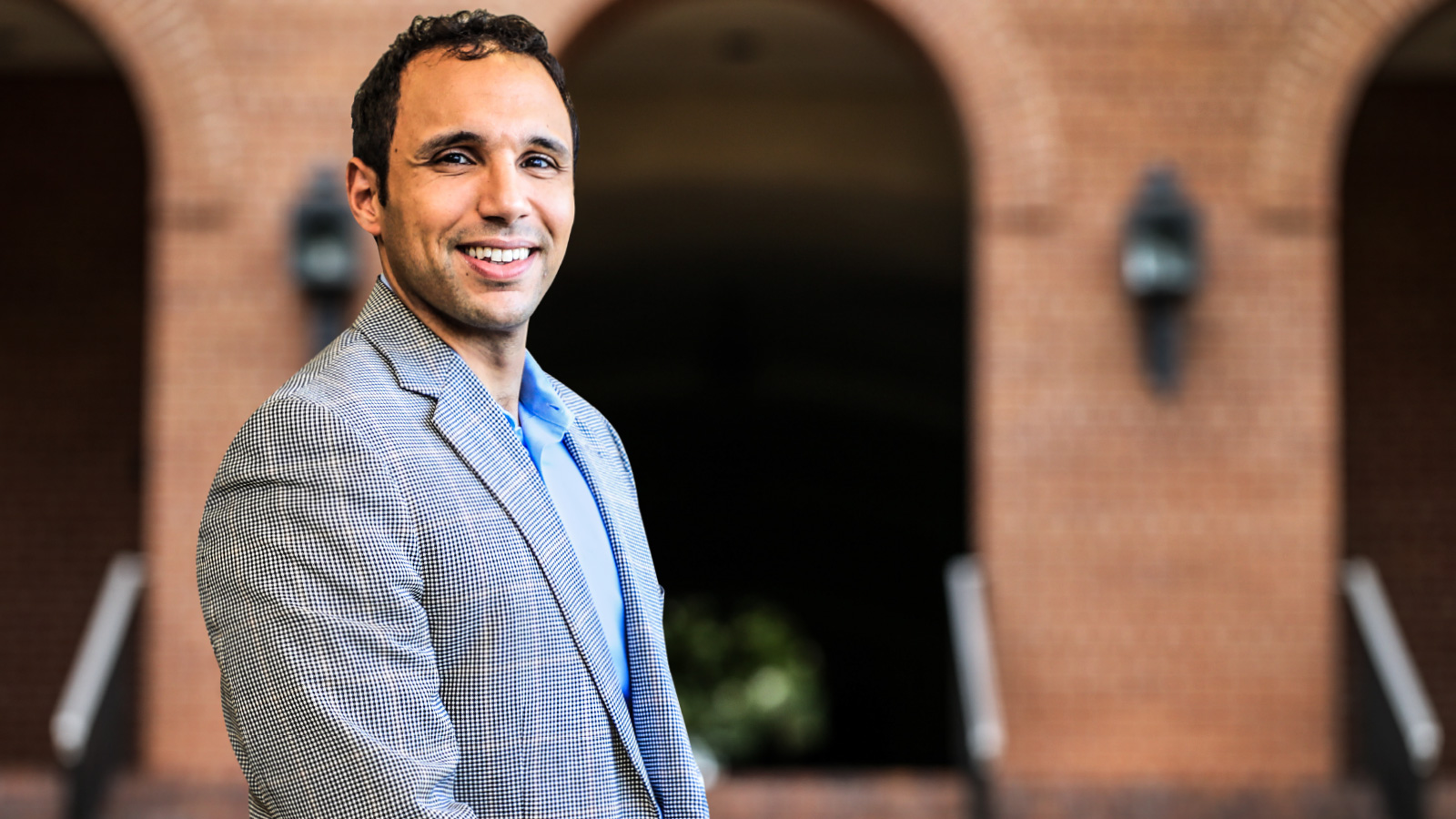Baylor Lights
This spring, Baylor began sharing stories of students, faculty and staff who, through their actions and commitments, shine a light that inspires others and brings glory to God. Here are two among thousands of #BaylorLights. See more at baylor.edu/lights.
Prof. Laura A. Hernández
Prof. Laura A. Hernández has contributed to Baylor Law School in many ways, with the most widely recognized being her assistance in starting the Deferred Action Childhood Arrivals (DACA) Immigration Clinic, a program that has served the community and strengthened Baylor Law students as lawyers.
Hernández joined the Baylor Law faculty in 2008, after 11 years practicing as a litigator with firms in Los Angeles, San Antonio and Dallas.
“Toward the end of my 10th year of practice, I realized that the most enjoyable aspect of the job for me was mentoring and training the young lawyers that came to our firm,” Hernández said. “I thought I would really enjoy teaching.” It wasn’t long after submitting her resume that she got a call to interview at Baylor Law and accepted an offer.
Hernández teaches a variety of upper-level electives including Immigration Law, Civil Rights Actions, Separation of Church and State, the occasional legal writing course, and Poverty Law, which is a new course.
When the Department of Homeland Security announced in 2012 that undocumented youth who were brought to the U.S. through no fault of their own were eligible to apply for deportation relief through the DACA program, Hernández and one of her students, Anali Gatlin, had the idea to assist applicants with the process.
”She is an advocate for those whose voices might not otherwise be heard.”
“Prof. Hernández has been tireless in her leadership of our Immigration Clinic, particularly in her advocacy for those whose lives are filled with uncertainty due to their DACA status and the ongoing questions regarding the viability of DACA,” said Law Dean Brad Toben. “She is an advocate for those whose voices might not otherwise be heard.”
Hernández received approval to open the Law School’s doors to DACA applicants, and the response from students interested in volunteering was overwhelming. The clinic opened every other quarter for three weeks, with clinics every evening. With the uncertainty surrounding the DACA program under the Trump Administration, they have adapted to helping current enrollees apply for renewals every Thursday evening.
“It’s amazing to see our students use their legal skills in a professional environment while putting applicants at ease,” Hernández said. “Most of our clients are high school students, and I can tell they are in awe of our law students. It’s always exciting to see the interaction.”
Hernández is encouraged by the influence the clinic has had on both her students and their clients.
“Our students realize that these DACA kids, or the Dreamers, are just like them. This is the only country these DACA kids have ever known. The Clinic is an eye-opener for our students, and helps them understand this particular immigration issue a little bit more,” she said. “For our clients, the ability to work lawfully is a game changer. When you’re undocumented, you are not legally able to work. But most do, because these immigrants support themselves. They do not have access to government help. The type of jobs they can get are those that Americans do not want, typically low-paying, often leading to a life of poverty. DACA changes that. It allows immigrants to contribute to our economy in a meaningful way. Through lawful employment, the DACA kids are paying the United States back for their public school education. If the United States deports them now, it loses its ability to recoup its investment.”
In addition to her work with the Immigration Clinic, Hernández values her time coaching several moot court teams, one of which brought home a national championship in February in her first year as coach competing at the Pace Environmental Law Moot Court Competition in White Plains, New York.
”I don’t try to turn everyone into the same type of speaker. Instead, I take the kind of speaker they are and make them the best version of themselves they can be.”
“I don’t try to turn everyone into the same type of speaker. Instead, I take the kind of speaker they are and make them the best version of themselves they can be. Sometimes, the students don’t understand they are capable of such greatness.,” she said. “Part of what is exciting for me is that we practice and practice. We go to the competition. I then have the privilege of watching my students become this greatest versions of themselves.”
She coaches teams that compete in the Pepperdine Entertainment Law Competition, Immigration Law moot court competitions, winning one national championship, and
has coached the Hispanic National Bar Association moot court team to two national championship wins.
Anis Qourzal
Anis Qourzal serves as associate director of international and transfer admissions, overseeing recruitment and admissions for all undergraduate international and transfer students.
”Anis truly lives out the mission of the University in his life and career.”
“Anis is a standout ambassador for Baylor. His work has directly impacted diversity in the classroom at Baylor. He truly lives out the mission of the University in his life and career,” Mary Herridge, director of admissions counseling, said.
Qourzal came to Baylor as a student from Malaga, Spain, graduating with a bachelor’s degree in biology in 2007 and a master’s of public health in 2012. He is fluent in different languages, and spends his time traveling the world to share Baylor with new populations of international students.
What brought you to Baylor from Spain?
My brother Amine attended before I did, and he was completely enamored by Baylor. He greatly influenced my decision to attend Baylor, and I am so thankful I followed him here. I love Baylor so much that I also got my graduate degree here.
What do you love most about your role in the Baylor community?
I love that I am not only able to bring students from all over the world to Baylor, but that I can also take Baylor with me all over the globe. Baylor is such an incredible place and it is my desire that the whole world knows about it.
How are you able to see students’ “lights shine bright” in your role?
When a current international student comes to Baylor, falls in love with this place, and then returns to their home nation and accomplishes great things. Not only are they doing amazing things in their careers throughout the world, but they are also recognizing the role that Baylor played in their lives and careers.
Throughout your time at Baylor, how has your role evolved?
As our international presence and population have grown, I have been able to specialize in recruitment and enrollment management for students coming to Baylor from outside of the U.S. exclusively. As a result of this growth, my team has grown, allowing me to take on other roles such as transfer admissions and other larger partnerships.
What are the biggest challenges faced by international students?
Some of the biggest challenges that international students face are adapting to a completely different culture and dealing with homesickness. These students travel long distances to come to school in Texas, far away from their families, friends and way of life, and culture shock is a very real thing.
How do you describe Baylor to international students and their parents?
I usually share with them my personal journey of picking Baylor as my university destination. I grew up in Spain attending an international school, and so I really researched schools all over the country. I studied universities in depth. I wanted to find a school that was the best fit for me personally. So I decided that I would make a list of exactly what characteristics I was looking for in a university. I wanted the university to have a big name and be recognized all over the world, but at the same time I didn’t just want to be a number at a very large school. I wanted a school that had world-class facilities, but had small classes where I could get to know my professors personally, and do research with them. I wanted a school with huge athletics, but that also had a caring and diverse environment that brought students from all over the world and every single U.S. state to its campus (where the student body, faculty, and staff would treat me like family). That place for me was Baylor University. There was no university like it in the world! It was the best decision I ever made.
In what ways have you been able to let your “light shine bright” at Baylor?
When I am overseas I always try to represent Baylor to the best of my ability. I am so proud of Baylor, not only as an alum but also as an employee of the institution. This pride and belief in the institution’s mission shines through me like a very bright light. I can’t hide it, and I believe that people across the world recognize that as well.

